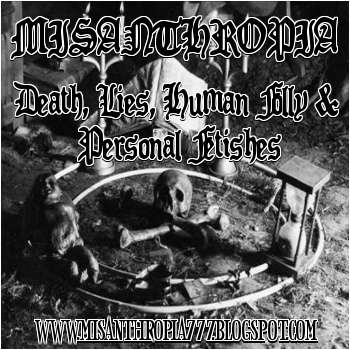 From Wikipedia, the free encyclopedia
From Wikipedia, the free encyclopediaColonel Rex Applegate (June 21, 1914 – July 14, 1998) worked in the Office of Strategic Services where he trained allied special forces in close-quarter combat during World War II.
In 1943 he wrote Kill or Get Killed, still considered the classic textbook of Western-style hand-to-hand combat. The updated 1976 edition of Kill or Get Killed was also published by the US Marine Corps as Fleet Marine Force Reference Publication 12-80. From the foreword:
"Fleet Marine Force Reference Publication (FMFRP) 12-80, Kill or Get Killed, is published to ensure the retention and dissemination of useful information which is not intended to become doctrine or to be published in Fleet Marine Force manuals."
and
"This reference publication was written in 1976 by Lieutenant Colonel Rex Applegate, USA (Ret), with the help of the Combat Section, Military Intelligence Training Center, Camp Ritchie, Maryland. At last there is one volume which speaks to the subjects of unarmed combat (offensive and defensive), combat use of weapons, disarming the enemy, handling of prisoners, the handle of mob/crowd disobedience, the use of chemicals in such situations, and how to establish a professional riot control unit."
Applegate developed the techniques outlined in the book during his work with William E. Fairbairn, who had previously developed his techniques while working for the Shanghai Municipal Police from 1907 to 1940. Fairbairn drew heavily on Chinese martial arts, which he simplified and tailored to the needs of training police in one of the most crime ridden cities in the world, with its history of opium trade, rebellion, and Triad gangsters. The result of this was the development of what is widely considered the first scientifically based martial art, Defendu. Applegate's techniques are heavily based on Fairbairn's Defendu, and enhanced with feedback from the OSS operatives who put his techniques into action in World War II.
Applegate was the proponent for a system of combat pistol shooting that is outlined in Kill or Get Killed, based on point shooting and stressing training for close range, fast response shooting. This system is somewhat at odds with the other prominent system developed and promoted by Jeff Cooper, called the "Modern Technique". Both systems have many supporters, with variants of Cooper's system being the more common currently. Supporters of Cooper's methods point to the nearly universal use of Cooper's methods in IPSC and other forms of action shooting, while Applegate's supporters point to police incidents where officers trained in Cooper's methods discharge vast numbers of rounds at very close range, most measured in tens of feet (3 m) or less, with few if any disabling hits. The last years of Applegate's life were spent actively promoting his combat pistol shooting methods to the police.
Applegate also co-wrote The Close-Combat Files of Colonel Rex Applegate with Chuck Melson.
In the early 1980s Applegate released the Applegate-Fairbairn fighting knife, an improved version of the famous WW II Fairbairn-Sykes knife. The design for the new knife was a collaborative effort of Applegate and Fairbairn during WW II that eliminated the major weaknesses of the F-S knife (e.g., weak blade point, inability to determine orientation of blade merely by grip). Boker Knives offers various versions of the A-F knife. There is also a line of folding knives produced by Gerber Legendary Blades, that he and William Harsey Jr. based on the Applegate-Fairbairn fighting knife.
In the late 1980s, Applegate released an improved version of Fairbairn's Smatchet, which had been used by the SAS and OSS during WW II. This also began as a collaborative effort between Applegate and Fairbairn during that war. Applegate named his 10" bladed knife the "Applegate-Fairbairn Combat Smatchet" and it was initially offered only as a hand-made knife. Later it was produced by Al Mar Knives, and then after Mr. Mar's death, Boker Knives was licensed to produce it. Applegate later had Harsey design a "Mini-Smatchet" with a 4.75" long blade that was produced by Boker.
Colonel Applegate was a founding member of the International Close Combat Instructors Association. He was inducted into the Blade Magazine Cutlery Hall of Fame at the 1994 Blade Show in Atlanta, Georgia in recognition for the impact that his designs have made upon the cutlery industry as well as his writings on knife fighting.
Colonel Applegate was a direct descendant of Charles Applegate who blazed the Oregon Trail in 1843 along with his brothers, Jesse Applegate and Lindsay Applegate. When not traveling to promote his pistol shooting methods, he spent his last years in Yoncalla, Oregon, where Charles Applegate's house still stands. Colonel Applegate's daughter, historian Shannon Applegate, lives in the house and writes and lectures on Oregon and Applegate family history.











 "He who can, does. He who cannot, teaches."
"He who can, does. He who cannot, teaches."



 "Being is substance and life; life manifests by movement; movement is perpetuated by equilibrium; equilibrium is therefore the law of immortality.
"Being is substance and life; life manifests by movement; movement is perpetuated by equilibrium; equilibrium is therefore the law of immortality.


 "The doctrine of equality!... But there exists no more poisonous poison: for it seems to be preached by justice itself, while it is the end of justice.... "Equality for equals, inequality for unequals" that would be the true voice of justice: and, what follows from it, "Never make equal what is unequal."
"The doctrine of equality!... But there exists no more poisonous poison: for it seems to be preached by justice itself, while it is the end of justice.... "Equality for equals, inequality for unequals" that would be the true voice of justice: and, what follows from it, "Never make equal what is unequal."



No comments:
Post a Comment
Note: Only a member of this blog may post a comment.